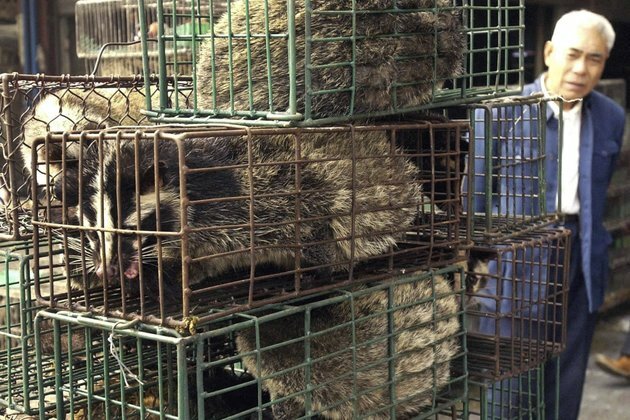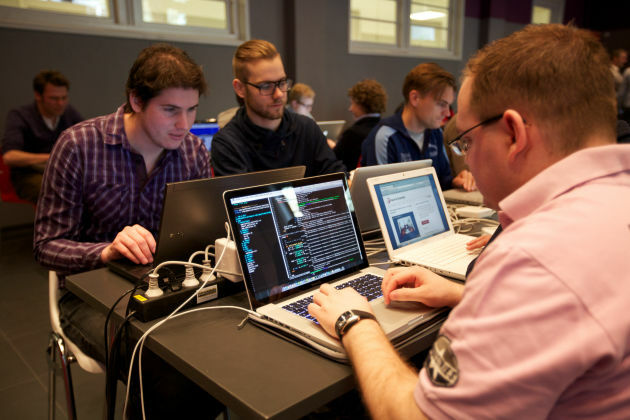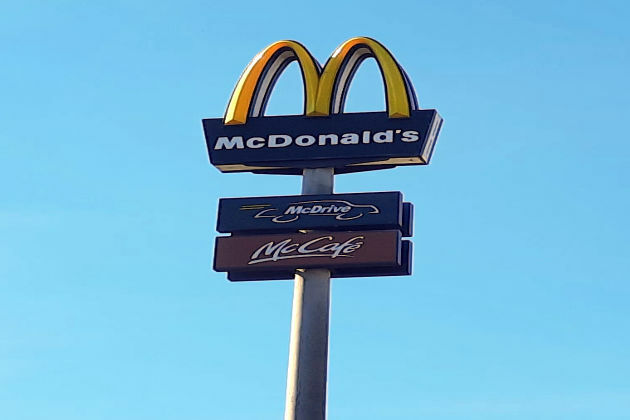Live Animal Markets Worldwide Can Spawn Diseases, Experts Say
Voice of America
25 Jan 2020, 17:35 GMT+10

WASHINGTON - The virus that has caused dozens of deaths and hundreds of illnesses worldwide emerged from a market in Wuhan, China, that sold live food animals, including some animals caught in the wild, according to Chinese authorities.
One study suggested a snake may have brought the virus to the market, but other experts were skeptical. The search for a definitive source continued.
A price list circulated on Chinese social media showed snakes, hedgehogs, peacocks, civet cats, scorpions, centipedes and more for sale at the market.
It's not the first time these markets have bred a new disease, and experts said it probably won't be the last. Severe acute respiratory syndrome, better known as SARS, originated at a similar market in China in 2002. It ultimately claimed nearly 800 lives.
Bird flu spread in these markets in the late 1990s and early 2000s. The H5N1 strain of influenza has killed 455 people since 2003.
Without proper sanitation and animal handling, health officials said, these markets can be spawning grounds for diseases.
Live animal markets are found across the developing world, especially in Asia and Africa.
Most animals sold there are healthy. But in the crowded conditions at these markets, one sick animal can infect many more, experts said.
Wild cards
Wild animals introduce a dangerous wild card.
For example, civet cats carried the virus that caused SARS. But scientists think the virus originated in bats.
"In the normal world, these species would never meet," said veterinarian Tony Goldberg, associate director for research at the University of Wisconsin Global Health Institute.
"But in these live animal markets, they brought those two species together," he said. "And when you do that in these tight, crowded, stressful conditions, you create every opportunity for these viruses to jump host species."
The virus could spread when a vendor butchers an animal. Or a sick animal could spread it through its saliva, urine, feces or other secretions.
Humans and domesticated animals have been exposed to each other's diseases for millennia. We've developed some defenses. That's not the case with a new virus coming from a wild animal, Goldberg said.
The virus lottery
Given how common these markets are around the world, it's almost surprising that new outbreaks don't happen more often, veterinarian William Karesh, executive vice president for health and policy at EcoHealth Alliance, said.
"I've gone to a market in Southeast Asia and they're selling maybe 5,000 or 6,000 bats every week," he said. "And that's just one market. As you drive around, there's 20 or 30 of those markets within a few hours' drive. So now we're talking about tens of thousands of bats for sale, and tens of thousands of rats (and other species). And that's going on throughout much of the world.
"So we're talking, really, about millions of animals for sale on a daily basis and tens of millions of people shopping there," Karesh said.
For a virus looking for a different species to infect, he said, it's like playing the lottery.
"Your chances of winning are pretty high when you've got exposure to 10 or 15 or 20 million people every day," Karesh said.
Traditions
People often don't shop at these markets by choice, he said. When refrigeration is not available, the best way to get fresh meat is to buy it when it's still alive. And customers can see if the animal is healthy before they buy it.
Also, many wild-caught foods are "deeply cherished in many cultures around the world," not just in Africa and Asia, Goldberg said, even if they may carry diseases.
In the United States, rabbits carry tularemia, a bacterial disease that can be fatal. It's on the list of potential bioterror weapons.
"You'll see human cases pop up every now and then when rabbit hunters cut themselves when butchering a rabbit," Goldberg said, adding he knows a rabbit hunter who got tularemia twice.
Market shift
The Chinese government closed live animal markets after SARS. But the markets have slowly reopened in the years since.
The government could close them again. But what may ultimately solve the problem is not a government mandate but a cultural shift.
Around the world, Karesh said, more young people are shopping at supermarkets.
"The grocery store is selling chilled refrigerated chicken, and it's cheaper," he said. "And people are busy. They're going to work. They don't really have time to go to that live animal market anymore."
Plus, he added, attitudes are changing. Older people may see wild animals as a delicacy. The younger generation? Not so much.
"I don't think they're so interested in going to the live animal markets anymore to watch a bat be slaughtered or have a chicken have its throat cut," he said.
"Twenty years ago, there weren't many people in China who had pet dogs," he said. Now, "there's a new generation of people that when they see a dog, they're not thinking about food. They're thinking about, 'Oh, wow, what a wonderful opportunity to have a pet.'"
 Share
Share
 Tweet
Tweet
 Share
Share
 Flip
Flip
 Email
Email
Watch latest videos
Subscribe and Follow
Get a daily dose of Asia Pacific Star news through our daily email, its complimentary and keeps you fully up to date with world and business news as well.
News RELEASES
Publish news of your business, community or sports group, personnel appointments, major event and more by submitting a news release to Asia Pacific Star.
More InformationAsia
SectionChina offers secret bounty for suspected Taiwan-linked hackers
BEIJING, China: The public security bureau in Guangzhou, a city in China, has announced a secret reward for more than 20 people it...
Security forces clash with insurgents in North Waziristan
ISLAMABAD, Pakistan: Pakistan's army said on June 4 that its security forces raided a militant hideout and killed 14 insurgents during...
Lee Jae-myung becomes president after South Korea’s political crisis
SEOUL, South Korea: South Korea's new president, liberal Lee Jae-myung, took office on June 4 after a dramatic and chaotic few months....
Policy debates in South Korean election drowned by personal attacks
SEOUL, South Korea: South Korea's upcoming presidential election has turned into a messy battle full of personal insults and scandals...
Akio Toyoda’s real estate firm to buy Toyota industries
TOKYO, Japan: Toyota has announced that it will take one of its key group suppliers, Toyota Industries, private in a deal worth UD$26...
Hegseth reassures Indo-Pacific Allies: 'You won’t face China alone'
SINGAPORE: On May 31, U.S. Defense Secretary Pete Hegseth told America's Indo-Pacific allies that they would not be left alone to deal...
Business
SectionMcDonald’s Snack Wrap returns to US after 9-year hiatus
CHICAGO, Illinois: McDonald's is bringing back its much-loved Snack Wrap in the U.S. starting July 10. The wrap, which includes chicken,...
Dollar General raises full-year profit and sales forecast
GOODLETTSVILLE, Tennessee: Dollar General reported record sales of US$10.44 billion for the latest quarter and raised its full-year...
Electric aircraft lands at JFK as Beta hits major milestone
SOUTH BURLINGTON, Vermont: Beta Technologies has become the first U.S. company to land an all-electric aircraft at an airport in the...
Summer travel slows as Americans hunt for last-minute bargains
WASHINGTON, D.C. Forget bucket lists; this summer, it's all about budget lists. Amid economic uncertainty and a weaker dollar, Americans...
Meta joins tech shift to nuclear power for AI and data centers
MENLO PARK, California: As artificial intelligence demands explode, Big Tech is turning to an old source for new power: nuclear energy....
Strong economic data drives U.S. stocks higher
NEW YORK, New York - U.S. stocks rose appreciably Friday following the release of a strong jobs report which sent the U.S. dollar higher,...













